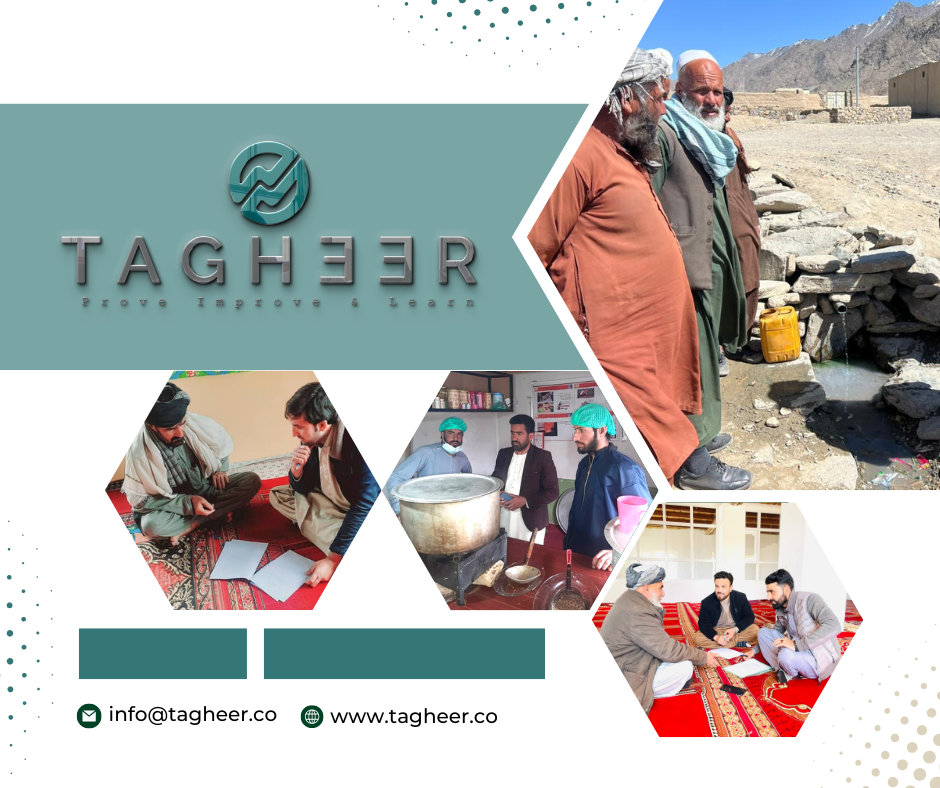
Endline assessment of a livelihoods improvement project
TAGHEER’s recent endline assessment of a livelihoods improvement project in Afghanistan has unveiled notable positive impacts. The project encompassed a comprehensive approach, focusing on diverse areas including cash-for-work, MSME support, community kitchens for food supply, infrastructure development, and Technical and Vocational training, all aimed at addressing crucial social and economic needs.
The cash-for-work initiative has provided male beneficiaries with sustainable employment opportunities and daily wages, contributing to their livelihood stability. Meanwhile, MSME support has empowered female beneficiaries, enabling them to enhance and expand their businesses, fostering economic empowerment within the community. Moreover, Technical and Vocational training programs, specifically tailored for females, have equipped participants with essential skills and toolkits, enhancing their employability and self-sufficiency.
In addition, the establishment of cold storages for farmers has significantly improved agricultural practices and post-harvest management, thereby enhancing food security and income generation. Furthermore, capacity building and social behavioral training have played a pivotal role in enhancing individuals’ abilities in managing daily life challenges effectively.
These impactful findings underscore the significance of community development projects aligned with the specific needs of the people, thereby contributing to sustainable development in Afghanistan. Collaboration among local stakeholders, INGOs, and UN bodies, coupled with continuous dialogue with the Afghan people and government, are essential elements in reducing vulnerabilities and enhancing the effectiveness of project outcomes.
TAGHEER remains committed to showcasing the positive impacts of its projects and actively supporting future initiatives aimed at promoting sustainable development and improving the well-being of Afghan communities.

